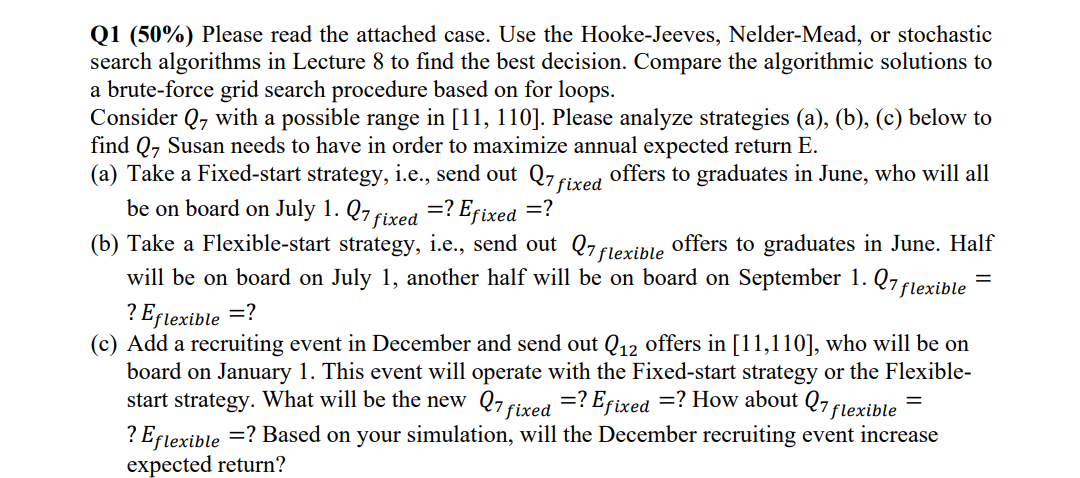Answered step by step
Verified Expert Solution
Question
1 Approved Answer
Q1 (50%) Please read the attached case. Use the Hooke-Jeeves, Nelder-Mead, or stochastic search algorithms in Lecture 8 to find the best decision. Compare

Q1 (50%) Please read the attached case. Use the Hooke-Jeeves, Nelder-Mead, or stochastic search algorithms in Lecture 8 to find the best decision. Compare the algorithmic solutions to a brute-force grid search procedure based on for loops. Consider Q7 with a possible range in [11, 110]. Please analyze strategies (a), (b), (c) below to find Q7 Susan needs to have in order to maximize annual expected return E. (a) Take a Fixed-start strategy, i.e., send out Q7 fixed' offers to graduates in June, who will all be on board on July 1. Q7 fixed =? Efixed =? flexible (b) Take a Flexible-start strategy, i.e., send out Q7 offers to graduates in June. Half will be on board on July 1, another half will be on board on September 1. Q7 flexible ? Eflexible =? (c) Add a recruiting event in December and send out Q12 offers in [11,110], who will be on board on January 1. This event will operate with the Fixed-start strategy or the Flexible- flexible start strategy. What will be the new Q7 fixed =? Efixed =? How about Q7f = ? Eflexible =? Based on your simulation, will the December recruiting event increase expected return? =
Step by Step Solution
There are 3 Steps involved in it
Step: 1

Get Instant Access to Expert-Tailored Solutions
See step-by-step solutions with expert insights and AI powered tools for academic success
Step: 2

Step: 3

Ace Your Homework with AI
Get the answers you need in no time with our AI-driven, step-by-step assistance
Get Started


